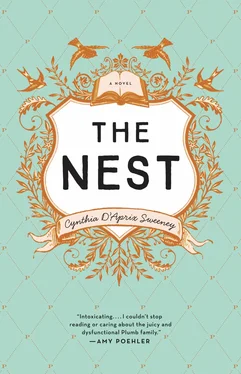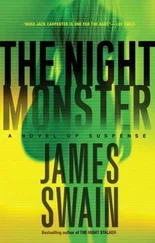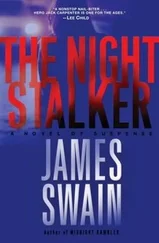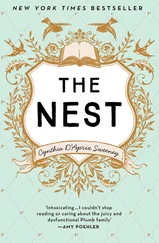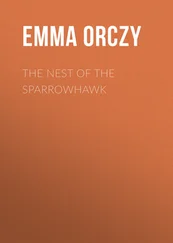“Especially ones he deems ‘unnecessary,’ anything charitable.”
“You can imagine our distress. Of course we initially refused, but then—”
“He summoned us to his office! Like a principal bringing truants called to account. It was mortifying—”
“ Mortifying. He had charts.”
“Not charts, graphs. They were very colorful.”
“ Very. ” Mutual and grave nodding commenced; Paul waited.
“You see, the amount of red on the future projected income—”
“Red isn’t good.”
“I realize that nobody wants red on the charts,” Paul said.
“Graphs.” They looked so troubled, avoiding eye contact, drinking their wine too fast, that he quickly reassured them he understood.
“You’ve done so much already,” Paul said. “You’ve done more than enough.”
“Our check will be a little less every year but you can count on us for something .”
“I’m afraid we’ve lived too long. Who would have thought?”
“Especially after all those years of smoking? All the red meat? We’ll be lucky if there’s anything left for our funeral when that day comes.”
Paul decided to ignore the odd sentence construction, the assumption that two people would have one funeral — on the same day — although it was impossible to imagine one sister without the other.
Although he thought he’d have more time, Paul knew this day would come eventually; his aunts wouldn’t live forever. Countless times he’d tried to get a better handle on the business side of things, his tenuous finances, but he hated the business side of things. He was trying to figure out how to redouble his funding efforts when he serendipitously heard the chatter about Nathan and arranged a meeting. Nathan hadn’t committed to anything but he’d been engaged, curious. He’d asked lots of questions and Paul offered intelligent, thought-out answers. Why wouldn’t he? He thought all the time about what he would do if he had more money. The website was pathetic, nothing more than a place to subscribe and submit, and many of his writers were frustrated their content wasn’t available online. He wanted to publish more books, many more books. He wanted to expand the modest-but-respected reading series he ran, start a summer conference, and maybe open a writing center for at-risk youth. But it would all take more money than he’d ever had.
“Let’s both think on it a little more,” Nathan had said. “I’ll be in touch in a few weeks.”
And then there was Leo, standing in his office and looking around and asking questions.
“ Unofficially, ” Paul said to Leo, “is there anything specific you’d like to know about how things work here?”
Since then he and Leo had met a handful of times, usually starting at the bench in the morning. They’d stroll, get coffee, and talk — mostly about work and the challenges of running a literary magazine. But about other things, too: real estate, the rapidly expanding Brooklyn waterfront, city politics. Paul still wasn’t sure what Leo was after. He assumed more than one person would be in the running for Nathan’s dollars, so he was trying his hardest to impress Leo, walking him through every stage of putting the summer issue together, occasionally pretending to solicit Leo’s advice and then feeling pleasantly surprised at his excellent input. Paul had forgotten — it had been easy to forget given Leo’s gradual morph from new-media celebrity into his glaring life of unrepentant indulgence — how cunning Leo could be about the printed word. Leo’s instincts were infuriatingly effortless and accurate, and Paul couldn’t help enjoying him and their lively exchanges. It was, in fact, Leo’s presence that made Paul Underwood rekindle the tiny ember he’d consigned to a much smaller place that was the thought of kissing Beatrice Plumb.
Over the years, Paul had had a few carefully selected lovers. They came and went, some more than once. He’d been married briefly, didn’t seem to have the knack for it, but he had loved Beatrice Plumb for nearly always. His love for her was quiet and constant, familiar and soothing; it was almost its own thing entirely, like a worn rock or a set of worry beads, something he’d pick up and weigh in his palm occasionally, more comforting than dispiriting. Paul suspected Bea would never love him, but he thought maybe, one day, she might let him kiss her. He was a very good kisser; he’d been told so often enough to have confidence in that skill and to know that a good kiss, perfectly timed, well executed, could establish inroads to far more interesting destinations.
He’d thought about kissing Beatrice for so many years that he knew he should probably never try, that the reality would almost have to pale in comparison to his many, many years of imagining the kiss and how it would unfold (in the back of a taxi on a sultry rainy night, on a stalled subway train as the lights flickered off, under the elegantly tiled archways of Bethesda Terrace as the sun was low in the sky, and his favorite: in the sculpture garden at MoMA, both so overcome by the lush, rotund Henry Moores that they turned to each other simultaneously, needing the same exact press of flesh at the same exact moment).
Paul had spent the past decade watching Bea’s light dim and it was troubling. Not only because he cared, deeply, about Bea as a writer and a person, but also because he suspected her slow fade played a part in his waning libidinous thoughts about her. He wasn’t attracted to failure; he preferred his women dedicated and ambitious. Bea had stopped talking about her book years ago. He never saw her sneaking time to write or even scribble on index cards or in a notebook. Some days he wanted to fire her, make her leave the office and do something else, anything else. But he couldn’t. He wouldn’t.
Bea seemed revived lately, there was something newly engaging and ardent about her. He’d overheard her make reference to a new writing project. He knew better than to ask; he’d wait for her to bring it up. He wondered if she’d shown Leo the new stuff yet. He hoped so because he would trust Leo’s opinion. If Leo thought whatever she was doing had potential, well, who knew? What could be more perfect for a newly expanded fiction imprint than the long-awaited debut novel by Beatrice Plumb. Anything she wrote would attract attention, along with the entity that published the work. Maybe he would pull Leo aside and ask if he’d heard or seen anything.
He could picture it perfectly: the publishing party at a local independent bookstore, Bea surrounded by an eager, appreciative crowd, her bright eyes and fluttering fingers, her long braids coiled and pinned up at the nape of her neck just how he loved. She would turn to him tender and eager with gratitude, flush with accomplishment, and he would touch her elbow, kiss her cheek as he’d done a thousand times before, but this time he would linger just a little longer, long enough for her to notice, a shadowy declaration. A first kiss in the book stacks. Now that was romantic.
The sole reason Bea Plumb agreed to accompany Paul Underwood to the dinner party at Celia Baxter’s on the Upper West Side, sure to be jammed with the exact type of people — writers, editors, agents — she couldn’t avoid at work but desperately tried to avoid at all other times, was because Celia was one of Stephanie’s closest friends from college. Celia was not of the publishing world, she was of the art world, but those worlds often collided, especially over cocktails. Bea hoped to see Stephanie at the smallish gathering in Celia’s intentionally stark and underdecorated apartment, which was only a few blocks — but worlds away — from Bea’s place; it would be easy for her to duck out if the event was unbearable.
Читать дальше
Конец ознакомительного отрывка
Купить книгу
